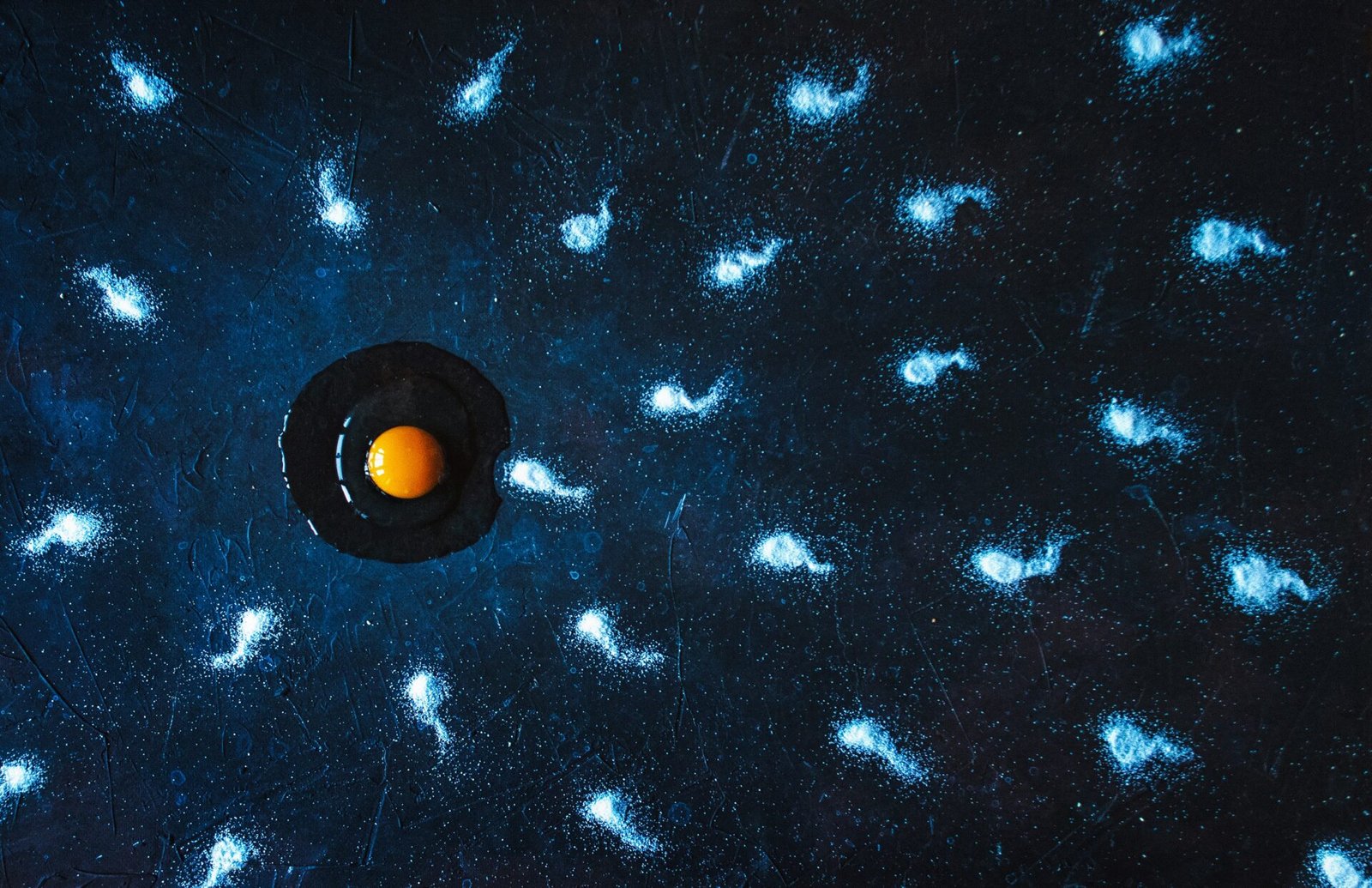The social, psychological, and physiological changes that accompany childbirth are often not openly discussed or oversimplified. There is a certain standard in society that the birth of a child should be a “happy event”, but this narrative does not take into account all the difficulties that accompany this process, especially when the pregnancy was not planned (and such pregnancies are abnout 40%). Happy or not, the woman will still be guilty of something, while the man, of course, was not even standing there. A woman alone seduces, decides to have sex, takes care of contraception, becomes pregnant, carries, gives birth and cares for a child. Something is very wrong here.
There are countless options for how we end up in this or that situation. There are no universal ways, advice or explanations, and there cannot be, except for the advice to be more polite and reserved towards others. We get to know the world not so much from books or stories as from our own experience, and precisely where books could really be needed, a lack of education is often found. In childhood, we are rather told what not to do – and how to do, how things work – they don’t tell us, or they tell us, but some kind of nonsense that doesn’t fit on our heads. Because often they themselves do not know. And even when they do know, the so-called facts often turn out to be rudimentary. And every past generation lacks the depth of perspective and actual knowledge, so you still have to figure things out as you go.
A situation often arises in which a woman is suddenly alone, with a child in her arms, without any idea how to live on. With a bunch of advice about how happy and grateful she should feel, which only causes aggression or guilt.
Birth and responsibility
Take me for example. I’m one of those who can say “I don’t like children”. In children, as in adults, I am only interested in their authenticity, curiosity and intelligence. There is a minimum of Caregiver and a maximum of Seeker among my main archetypes (I will talk about archetypes in future articles). My child was unplanned and born as part of a search, and my outlook was childfree – as a result of disappointment with the institution of the family as such.
But as a seeker, I searched, and in this I also found. The baby really turned my world upside down in a good way. But this does not change the fact that I have other priorities and a minimum of energy for the child, especially considering that there are only two of us. Most of my time is devoted to searching. And in almost seven years I still haven’t gotten used to the role of a mother.
Shouldn’t I have given birth? It was necessary, because it led to a number of wonderful changes. Am I an irresponsible mother? Quite the opposite, it seems that women who didn’t plan to have children and do not want or are afraid to have them, turn out to be more responsible. But these are my own observations. If we talk about research, it says about a more equal division of responsibilities among parents who planned pregnancy and a more traditional distribution among those who did not plan it. In the case of an unplanned pregnancy in stressful conditions, a woman will rather direct her efforts to her own survival and the survival of the child than to carry out educational work with her partner, which should ideally take place at the planning stage, and even better – start from education of the partner by parents and school. As a result, a woman can automatically take over all the responsibilities of care, and then not actually understand what her husband is for. But well, that’s only one of the scenarios.
I was lucky, my pregnancy happened at the right time, my baby did a miracle to me. But there are women who go out the window after giving birth, purely even because of hormonal changes. There are women who die during childbirth. There are women who lose children. There are children who are born with developmental disabilities or are injured during childbirth. Because it’s a lottery, it’s impossible to predict how it will go. But it is not common to talk about it. And I want to talk about it, because the social narrative here is mostly reduced to two things: “you shouldn’t have given birth” and “you shouldn’t have gotten pregnant”, where reproach hangs over a woman and only a woman, no matter what she does. And the man, it turns out, is a willless slave of female sexuality. Ugh.
Lack of sexual education and awareness of the consequences
One of the key aspects of the problem is the lack of proper sex education, which leads to a lack of responsibility or a complete lack of understanding of how pregnancy and childbirth can affect life. Even in the case when contraceptives are used, they do not provide a 100% guarantee, and a woman may find herself in an unexpected dilemma. Exactly the woman, because the man is somehow all right in any case. A man cannot be responsible for not being a woman, but in a healthy relationship, it’s important that he recognizes and embraces his complementary role. We are talking partnership.
A change in a man’s sense of his own responsibility in matters of relationships, sex, contraception, pregnancy and child care must take place at deep levels: upbringing from childhood, sexual education, which explains in detail what, how and why it happens and what is the role of the man in this, development empathy and regulation by law. If the child was created by two people, then it is not the woman who should think about how to continue her life, it is not the woman who should lose her freedoms and opportunities, and no, money does not solve all the issues here, although of course solves many of them.
Women, in turn, should not be faced with dilemmas, instead, there should be an educational readiness for possible options and challenges and a formed (and preferably discussed with a partner) position on this issue. If, regardless of the reasons, this readiness is not present, society should offer support to the woman, and not cultivate “it’s your fault”, and this support should consist of providing information, options, support in choosing whether to give birth to a child or not, the opportunity to refuse a born child, and psychological help. Because the matter in this topic is very thin.
Challenges of pregnancy, childbirth, motherhood and child care
So, what should we be prepared for?
Pregnancy
- The first shock: when you find out that you are pregnant, and you wait for your partner’s reaction as a verdict. This is the moment when a woman finds out whether she is in it on her own or not, because even when it was previously disscused, theory is not practice.
- Difficult decision: having to make a decision to give birth or not, which is further complicated by personal moral standards and societal pressure.
- Physiological changes: hormonal changes, nausea, fatigue, weight gain, swelling, back pain, digestive problems, hemorrhoids, stretch marks and skin rashes, difficulty sleeping, heartburn, hair loss, etc. Some women face complications such as gestational diabetes or preeclampsia. And death. In general, pregnancy is physically difficult and tiring, – being pregnant is work.
- Emotional changes: mood swings, anxiety, fear of childbirth and motherhood, doubts about the future. Possible development of prenatal depression (7-20% of women). Stress in connection with worries about the health and life of the child, not to mention her own.
- Social and career challenges: societal pressure and gender stereotypes about pregnant women in the workplace. Maternity leave often affects career growth and professional development.
Childbirth
- Physical trauma: natural childbirth can lead to ruptures, bleeding, severe pain, especially if the woman is not well-versed in theory and faces obstetric violence. Caesarean section is a serious operation that requires a long recovery.
- Emotional state: feelings of sadness, fear, helplessness, anxiety may arise. It is possible to develop post-traumatic stress disorder (PTSD) after a difficult or traumatic birth.
- Unexpected complications: bleeding, emergency surgery, life-threatening conditions such as pre-eclampsia or infections. Well, again, the risk of death is small, but it is there. By the way, statistically legal abortion is safer for the mother than childbirth.
Motherhood and child care
- Postpartum physical problems: Recovery from childbirth is often accompanied by fatigue, pain, hormonal changes, and problems such as healing of vaginal tears, diastasis, or hemorrhoids; at the same time, the newborn child rather does not allow normal sleep and rest.
- Postpartum depression: Between 10% and 20% of women suffer from postpartum depression, which includes symptoms of hopelessness, fatigue, anxiety, and sometimes alienation from the baby. When a woman does not get enough sleep and has no resources, the child can be perceived as an aggressor and repulsed with all his being. Another part of women suffers from PTSD due to traumatic childbirth.
- Loss of identity: after the birth of a child, many women feel that they lose their own “self”, because most of their time and energy goes to the child.
- Social pressure: Society often romanticizes motherhood, minimizing or ignoring its challenges. This puts additional pressure on women who may not feel like “perfect mothers”. In the case of an unplanned pregnancy, the situation becomes more complicated. A woman who may not be ready for motherhood feels additional pressure from others. The importance of choice in this process is often glossed over, and there is stigma surrounding the topic of abortion, contraception and family planning. Instead, there is a rhetoric of “you got pregnant, so you have to give birth” that ignores each woman’s unique circumstances. If you gave birth, then you should be grateful, because it is a gift. You have no right to complain, because it was your choice, grit your teeth and bear your cross. And if you’re not grateful, why did you give birth. A closed circle.
- Career challenges: Returning to work after maternity leave is difficult, as women often have to balance work responsibilities with childcare. Many face discrimination or loss of career opportunities.
- Gender imbalance: often a woman falls into depression, in contrast: a man has freedoms and opportunities that disappear for a woman. A man often continues to sleep normally, realize himself, move freely and have fun, and the number of his responsibilities is not affected after having a child. In addition, he is also starting to get nervous that he is now getting a neglected woman who does not pay attention to him.
In her career, a woman will have to stop at least for some time. For at least three months, the mother needs to lie down next to the child, let herself go and rest from childbirth. Breastfeeding is the factor that affects a woman’s future life the most. It is possible to give up breastfeeding, but it can be a psychologically difficult choice, another dilemma, because the importance of breastfeeding for both mother and child cannot be overestimated.
It seems that the connection between mother and child is known to be stronger than the connection between father and child, because for nine months the child lived inside the mother, and then it was “attached” to the breast. From superficial point of view, this connection is “easier” for a woman, itäs auto, (nine months of gestation and breastfeeding we cancel out for some reason, as it’s not a work). It doesn’t mean that the father should simply give up on establishing a similar connection on his part, exactly after childbirth the father should begin to establish a connection with the child more actively.
Partnership and division of responsibilities
- Deterioration of the relationship: After the birth of a child, many couples go through a crisis, because most of the attention is focused on the child. The balance in relationships, everyday life and child care is disturbed, conflicts arise due to fatigue and lack of time for communication. Distance occurs. If communication between partners deteriorates, problems begin to accumulate.
- Unequal division of responsibilities: Women often do more housework and care for the child while neglecting their own needs, which can cause emotional and physical burnout.
The problem of the nuclear family
With the development of society, traditional forms of family support have changed. If earlier members of the extended family – grandparents, aunts and uncles – were involved in raising a child, today the responsibility for everything often falls on two (or even one) parents. Such isolation creates additional pressure, because the child should learn, receive attention and tenderness from the community, not one or two people, being the whole community to a child is extremely exhausting.
Family or community support may be minimal, and professional resources such as daycare or child care are often unavailable or prohibitively expensive. Not to mention the availability of food, sports, entertainment, education, etc. places for people with children.
In the summary
In general, what I see in this area is ignorance, blatant injustice towards women and mothers, in particular, the devaluation of the work of motherhood and the individual who takes on the role of mother. And the absence of a husband on the horizon. A mother is thrown out of public life, although she is often mentioned when someone needs to blame someone for something. Mother and child are some unwanted social elements that should shut themselves up at home, figure things out for themselves in there and return to society when they are “ready”: fed, grown up, independent. And the absence of a husband on the horizon.
There is a real imbalance in the perception of responsibility, especially regarding unplanned pregnancy, where most or all of the emotional and physical burden falls on the woman. Society must rethink its attitude to motherhood and family support, avoid pressure on women, change narratives, the education system and create opportunities for families with children. Not to mention a man who should fit into the horizon.



